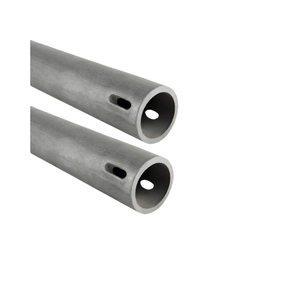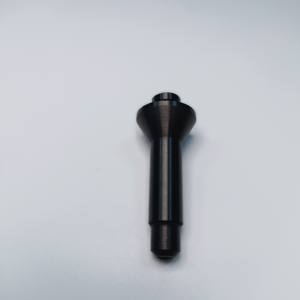Discover Premium Ceramic Products | Durability & Elegance United | Advanced Ceramics
PRODUCT PARAMETERS
Description
Introduction of Boron Carbide Ceramics
Boron carbide ceramics is an inorganic, non-metallic material with carbon and boron as its main components, and its chemical formula is B4C. Since its discovery in the early 20th century, this material has attracted a great deal of attention because of its unique physical and chemical properties. Boron carbide ceramics have an extremely high hardness, second only to diamond and cubic boron nitride, which makes it important in the field of wear-resistant materials. It also exhibits excellent corrosion resistance, high-temperature stability and low-density properties, attributes that make it ideal for the manufacture of bullet-proof vests, nozzles, bearings and other mechanical components that require high wear resistance. Boron carbide ceramics can also be prepared in a variety of shapes and sizes through different processes to meet the needs of different industries.
Characteristics of Boron Carbide Ceramics
Boron carbide ceramics are known for their excellent performance characteristics, starting with their ultra-high hardness and strength, which makes them resistant to severe abrasion and scratching, making them ideal for use in cutting tools and abrasives. Secondly, the material possesses excellent chemical stability and is less likely to react with chemicals such as acids and alkalis, even in extreme environments, making it widely used in certain key components in the chemical industry. In addition, the superior thermal stability of boron carbide ceramics and their ability to maintain structural and property stability at extremely high temperatures makes them one of the key materials in the aerospace and nuclear industries. Finally, it is worth mentioning its lightweight properties, which, due to its low density, make boron carbide ceramics an ideal option for application scenarios that require light weight but high strength. Together, these characteristics give boron carbide ceramics a wide range of applications.
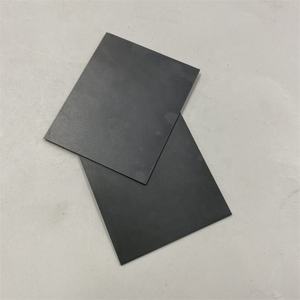
(High Strength Boron Carbide B4C Ceramic Beam Small square Rod Cylinder)
Specification of High Strength Boron Carbide B4C Ceramic Beam Small square Rod Cylinder
High Strength Boron Carbide (B4C) Ceramic Light beams are crafted for requiring commercial applications. The material combines severe solidity with light-weight residential properties. B4C ceramic beams, rods, and cylinders are optimal for wear-resistant components, shield systems, and accuracy devices. The product is available in tiny square rods or cylindrical forms. Requirement dimensions range from 3mm to 30mm in diameter. Personalized sizes as much as 300mm can be generated.
Boron carbide flaunts a density of 2.52 g/cm FIVE. This makes it one of the lightest ceramic materials. Its Vickers hardness goes beyond 30 Grade point average. This residential or commercial property exceeds most metals and engineering ceramics. The melting factor is about 2450 ° C. Thermal stability continues to be high in extreme atmospheres. Chemical resistance covers acids, alkalis, and harsh gases.
The item is sintered utilizing hot pressing or pressureless approaches. This makes sure high pureness and uniform microstructure. Surface area surfaces are polished to Ra ≤ 0.4 μm. Tighter tolerances are attainable for specialized needs. Machining choices consist of grinding, boring, or laser cutting. Pre-machined components minimize post-processing prices.
Applications extend several industries. In protection, B4C ceramic beams act as armor plates for automobiles or body security. Industrial makes use of consist of sandblasting nozzles, bearing parts, and reducing tools. Nuclear reactors employ B4C poles for neutron absorption. Semiconductor making uses them in wafer-handling systems.
Mechanical strength reaches 300-400 MPa. Crack toughness is 2.5-3.5 MPa · m ONE/ TWO. These worths guarantee longevity under high stress and anxiety. Electric insulation residential or commercial properties protect against existing leakage. Thermal conductivity ranges from 30-42 W/m · K. Low thermal growth minimizes form distortion.
Quality control entails ultrasonic testing and X-ray assessment. Each batch undertakes thickness checks and solidity verification. Certifications include ISO 9001 and MIL-SPEC standards. Personalized product packaging choices secure versus transportation damage. Mass orders are supported for huge projects.
The product operates accurately in temperature levels from -200 ° C to 1000 ° C. No degradation occurs in vacuum cleaner or inert ambiences. Surface coverings like silicon carbide enhance oxidation resistance. Compatibility with metal bonding permits crossbreed component styles.
Preparations differ from 2-6 weeks. Examples are offered for efficiency screening. Technical datasheets consist of detailed chemical structures. Customer assistance helps with style optimization.
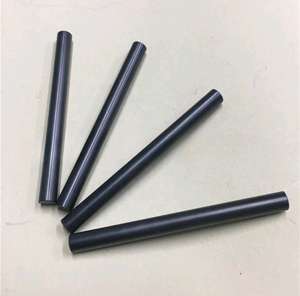
(High Strength Boron Carbide B4C Ceramic Beam Small square Rod Cylinder)
Applications of High Strength Boron Carbide B4C Ceramic Beam Small square Rod Cylinder
High-strength boron carbide (B4C) ceramic light beams, tiny square poles, and cylinders offer important functions sought after markets. Their outstanding solidity, put on resistance, and lightweight buildings make them excellent for specialized applications.
B4C ceramic elements are extensively used in shield systems. The material’s extreme firmness offers ballistic security while reducing weight. Military vehicles, body shield, and airplane armor benefit from this combination. It quits high-velocity projectiles successfully without including bulk.
Industrial machinery counts on B4C porcelains for wear-resistant parts. Parts like nozzles, seals, and liners handle rough settings. Mining devices uses B4C components to prolong service life in sandy problems. The material resists disintegration from sand, dust, and extreme chemicals.
Atomic energy applications make use of B4C for neutron absorption. Control rods and protecting elements in reactors depend upon its ability to capture neutrons. This makes certain secure procedure by avoiding unchecked nuclear reactions. The material’s stability under radiation makes it a reputable selection.
Aerospace and protection markets make use of B4C ceramics for high-temperature elements. Rocket nozzles, turbine blades, and heat shields stand up to extreme thermal tension. The product keeps toughness and form even above 2000 ° C. This prevents failing in important systems during procedure.
Accuracy manufacturing tools use B4C for reducing and grinding. Its hardness exceeds standard materials like tungsten carbide. Devices stay sharp longer, decreasing downtime in metalworking and machining. This boosts productivity in vehicle and electronic devices production.
Clinical devices utilize B4C for sturdy, non-reactive parts. Surgical tools and implants gain from its biocompatibility. The material stands up to deterioration from bodily liquids, making certain lasting safety. Its smooth surface area minimizes rubbing during treatments.
B4C ceramic light beams and rods sustain advanced research study. Laboratories utilize them in high-stress experiments needing dimensional security. The material’s reduced thermal growth ensures precise dimensions under varying temperature levels.
Custom forms like tiny square poles and cylinders adjust to details requirements. Engineers design B4C parts for portable systems where area and weight matter. The material’s flexibility addresses challenges across markets.
High-strength B4C porcelains remain to change steels and polymers in essential applications. Their unique properties address problems in extreme atmospheres. This drives development in technology and commercial processes.
Company Introduction
Advanced Ceramics founded on October 17, 2014, is a high-tech enterprise committed to the research and development, production, processing, sales and technical services of ceramic relative materials and products.. Since its establishment in 2014, the company has been committed to providing customers with the best products and services, and has become a leader in the industry through continuous technological innovation and strict quality management.
Our products includes but not limited to Silicon carbide ceramic products, Boron Carbide Ceramic Products, Boron Nitride Ceramic Products, Silicon Carbide Ceramic Products, Silicon Nitride Ceramic Products, Zirconium Dioxide Ceramic Products, Quartz Products, etc. Please feel free to contact us.(nanotrun@yahoo.com)

Payment Methods
T/T, Western Union, Paypal, Credit Card etc.
Shipment Methods
By air, by sea, by express, as customers request.

5 FAQs of High Strength Boron Carbide B4C Ceramic Beam Small square Rod Cylinder
What is boron carbide ceramic? Boron carbide (B4C) ceramic is a synthetic material known for extreme hardness and light weight. It ranks third in hardness after diamond and cubic boron nitride. The material offers high thermal stability, low density, and excellent resistance to wear and corrosion. These properties make it suitable for demanding industrial and defense applications.
Where is boron carbide ceramic used? It is commonly applied in armor systems, such as bulletproof vests and vehicle plating. Industrial uses include abrasive blasting nozzles, cutting tools, and wear-resistant parts. Nuclear reactors use it for neutron absorption due to its high boron content. Its lightweight nature benefits applications where reducing weight matters.
Why choose boron carbide over other ceramics? Boron carbide outperforms materials like alumina or silicon carbide in hardness and strength-to-weight ratio. It resists chemical erosion and maintains stability under high stress. This makes it ideal for environments requiring durability without added bulk. Its neutron-absorbing ability is critical in nuclear safety systems.
Is boron carbide easy to machine? Machining boron carbide is challenging due to its extreme hardness. Standard tools wear quickly. Diamond grinding or laser cutting is recommended for shaping. Professional machining services ensure precision and reduce material waste. Pre-sintered blocks are easier to process before final sintering.
How does boron carbide handle high temperatures? Boron carbide withstands temperatures up to 1,800°C in inert atmospheres. Oxidation resistance decreases above 500°C in air. Protective coatings or controlled environments extend its usability in high-heat settings like aerospace components or furnace parts. Thermal shock resistance is moderate. Sudden temperature changes may cause cracking.
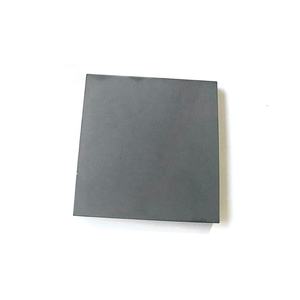
(High Strength Boron Carbide B4C Ceramic Beam Small square Rod Cylinder)
REQUEST A QUOTE
RELATED PRODUCTS
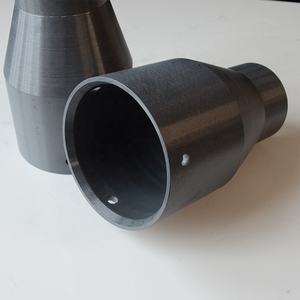
Custom Boron Carbide Ceramic Nozzle B4C Tubing Assembled with Steel
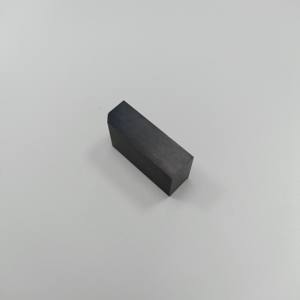
99% Boron Carbide Ceramic Boron Carbide Ball Boron Carbide Nanopowder Ceramic Spray Granulation Bead
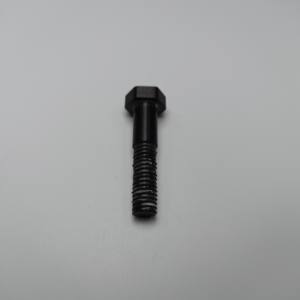
Top Quality Boron Carbide B4C Sputtering Target /Plate / Rod /Tube 3N Boron Carbide Ceramic Target
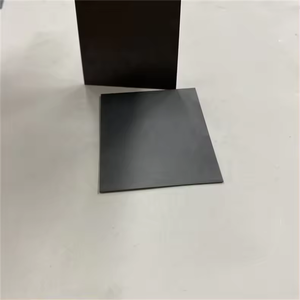
High Purity 99% Boron Carbide Ceramic Wear armor Plate Boron Carbide B4C Powder
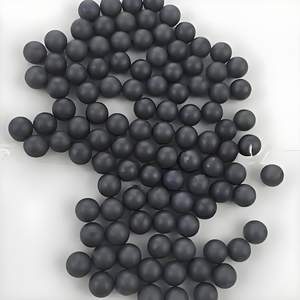
40mm across Hexagon Boron Carbide (B4C) Ceramic Plate Premium Ceramics Product
